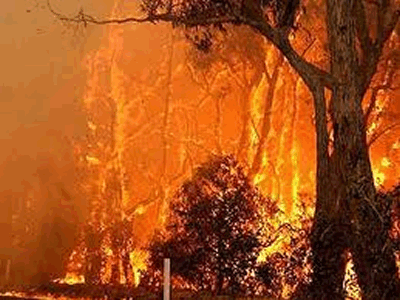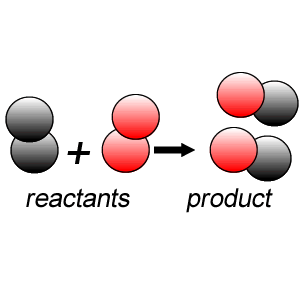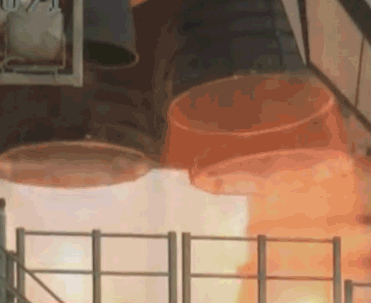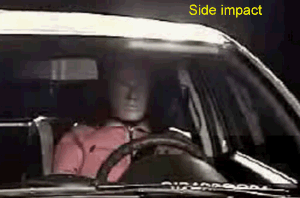Collisions and reactions

We have always thought of fires as wood burning but shown on the right is a video of how the smoke ignites and not the wood.

Consider the reaction shown on the left. It looks like all reactant particles will react to form the product. But this is not true, if the reactant particles are not travelling fast enough then molecules simply bounce off each other when they collide and no reaction is possible. For a reaction to occur, molecules must collide with enough force so as to break apart.
The individual atoms then recombine to form a totally new product. This new product is usually very strong in holding its atoms together. Some times a little heat is supplied to get the molecules traveling at speeds high enough to cause energetic collisions.

This heat is called activation
energy. Petrol and oxygen for example can mix freely with each other
without reacting. When activation energy is provided, in the form of a
spark, the reaction proceeds with a huge release of energy and force. The
spark has caused molecules of oxygen and petrol to increase in speed and
collide with a force big enough to break the molecules apart. This reaction
releases heat and fuels more collisions and the reaction soon becomes
explosive.
Hydrogen and oxygen are used to fuel the Space Shuttle. They burn to produce
a great deal of heat, as shown on the left. Air contains huge amounts of oxygen and hydrogen
but lighting a match in the open does not cause a huge explosion. Explain
WHY?
Candle wax does not burn but it will melt. However the wax vapour will ignite. Have a look at the 120kb movie and explain why wax vapour ignites while solid wax does not burn.
Particles of a particular substance have more energy when they form a vapour than when they are in the solid or liquid state. Greater energy means more forceful collisions which are the basis of chemical reactions.
Will the smoke from burning wood that has just been extinguished ignite? Click to see a 120kb video and explain why?
